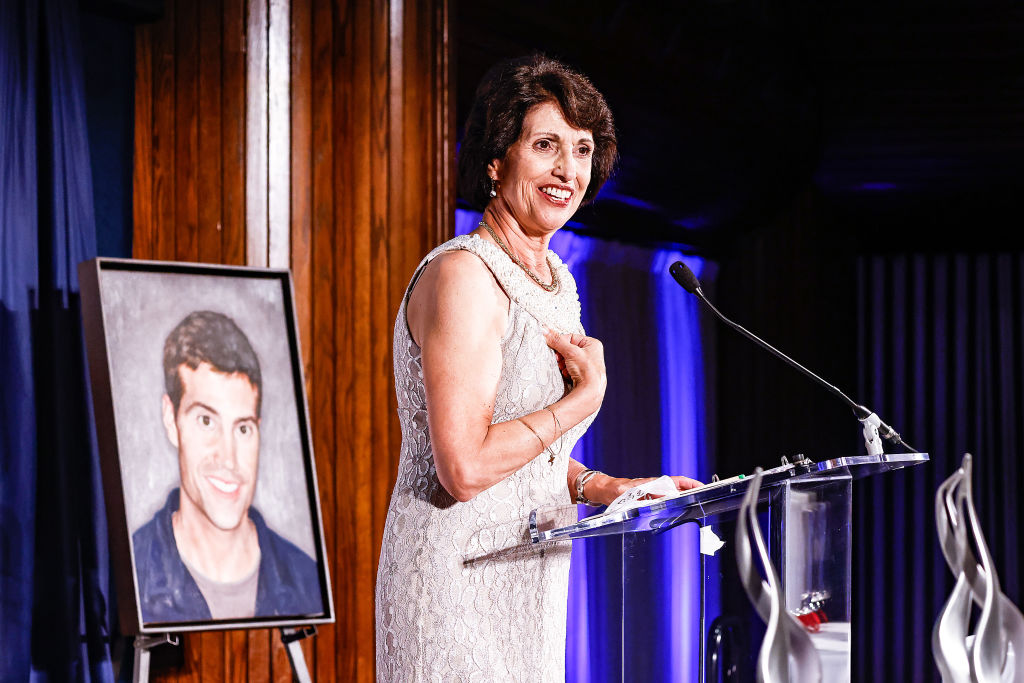Foundation Honoring Slain Journalist James Foley Advocates For American Hostages Abroad

Born of tragedy, the James W. Foley Legacy Foundation has worked since 2014 to reunite more than 140 Americans held captive in foreign countries with their families.
These tireless efforts reflect the courageous voice for freedom, justice and compassion that the organization’s namesake, James W. Foley, embodied. Foley – an American teacher, humanitarian and independent conflict journalist – was kidnapped Thanksgiving Day 2012 while reporting in Syria and murdered nearly two years later by the Islamic State (ISIS).
Within 16 days of his senseless August 2014 slaughter, Foley’s family and friends launched the Foley Foundation to advocate for American hostages and wrongful detainees held abroad and promote journalist safety. It is the honor of a lifetime to join Ambassador Roger Carstens, former special presidential envoy for hostage affairs, and Ryan Fayhee, a partner at Akin with extensive experience representing current and former hostages of transnational criminal organizations and detainees of foreign governments, as the newest members of the foundation’s board of directors.
Since its formation, the Foley Foundation has advocated successfully for the return of more than 140 Americans held captive abroad, driven critical policy and legislative changes and helped create the U.S. government’s “hostage enterprise.” It has also educated journalists and their employers on how to protect themselves abroad while carrying out their invaluable work of fortifying a healthy democracy.
When P3’s Take No Prisoners debuted at the 2025 South by Southwest in Austin, audiences received their closest inside look to date at high-stakes U.S. hostage negotiations. Both heart-wrenching and exhilarating, the documentary features the journalistic chops of P3’s Adam Ciralsky, who embedded for 15 months with fellow Foley Foundation board member Roger Carstens, America’s top hostage negotiator at that time.
Take No Prisoners chronicles Carstens’ efforts to free Los Angeles public defender Eyvin Hernandez from “The House of Dreams,” a notorious Venezuelan prison. From tense White House meetings to chaotic Caracas streets, the film offers unique, behind-the-scenes footage documenting the setbacks, breakthroughs and relentless determination required to triumph in the dangerous, high-stakes world of U.S. hostage recoveries.
Ciralsky masterfully captures Carstens’ unflappable negotiating poise and juxtaposes it with the demoralizing anxiety the families advocating for the release of their loved ones endure. This is the raw power of documentary storytelling.
These are the projects the world needs to see, internalize and then decide what role they can personally play in disrupting the status quo.
These stories are not in the past—they are happening now. Less than two weeks ago, Secretary of State Marco Rubio confirmed that nine Americans arrested between late August and January are still being wrongfully detained in Venezuela and called on President Nicolas Maduro’s government to release them immediately. This revelation comes barely one month after Richard Grenell, President Donald Trump’s envoy for hostage affairs, secured the release of six other American detainees from Maduro’s grasp.
James Foley believed wholeheartedly in the power of a free press and the ability of everyday people to change the world around them by bearing witness to the atrocities of war. In turn, the foundation bearing his name works directly with government officials, pro bono partners and victims to end their hostage ordeals. It conducts independent, nonpartisan research to help hold leaders to their “sacred obligation” to resolve the injustice of hostage-taking and ensure captors are held accountable for their crimes. Most importantly, it develops and shares tools that help journalists, aid workers, and all Americans to stay safe abroad.
In my new role, I vow to uphold the values the Foley Foundation prizes: the moral courage to encourage and empower all to act with moral conviction; a commitment to resolving the injustices of hostage-taking through research and advocacy that shape policies to deter captors and hold them accountable; and the compassion to empathize with and help hostage families by listening, identifying the resources needed and minimizing the obstacles they encounter, all while advocating for their loved ones’ swift returns.
Ashley Bell is the founder and CEO of financial services platform Ready Life, board chairman and CEO of Redemption Holding Co., former chief of the U.S. Small Business Administration’s Southeast Region and former White House policy adviser for entrepreneurship and innovation in the Office of American Innovation.
SEE ALSO:
They Blinded A Black Soldier—Now They’re Blinding America
Student Loan Payments Quadruples After Trump Administration Blocks Borrowing Plans

